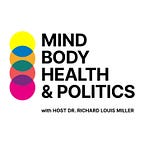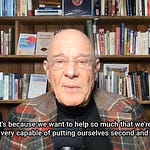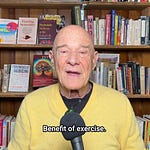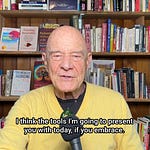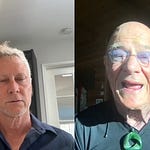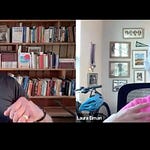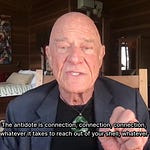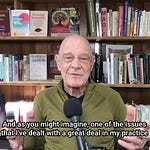Dear listeners,
Pharmaceutical companies often hide or downplay the adverse effects of their medicines. They call them “side” effects, when we all know that they affect the whole person.
I prefer to call these unwanted complications “adverse effects” for the sake of honesty. Likewise, it is essential that those of us working the field of psychedelic science are transparent about both the positive and negative effects—“the good, the bad and the ugly”—of these compounds.
I am beginning a new series that will serve as a PSA on the unwanted complications of psychedelics medicines.
For me, this work is not about financial gain, but about bringing something with great potential for healing and creativity to humanity.
My guest this week is Katherine MacLean, Ph.D., an expert on the effects of mindfulness meditation and psychedelics on cognitive performance, emotional well-being, spirituality, and brain function. Katherine is also a research scientist and the author of a forthcoming book, Midnight Water: A Psychedelic Memoir.
I first interviewed Katherine back in 2014, when she was a postdoctoral research fellow and faculty member conducting clinical trials of psilocybin with Dr. Roland Griffiths at Johns Hopkins University School of Medicine. Their groundbreaking research on psychedelics and personality change suggested that these medicines can enhance openness to new experiences and promote mental health and emotional well-being throughout one’s lifespan.
However, we must not give in to the temptation to overhype these remarkable results, or use them as an excuse to gloss over the potential downsides. Our conversation touches on their findings regarding potential adverse effects. We differentiate between unpleasant and adverse experiences, noting that the former can be an occasion for positive growth, while the latter should be minimized through careful preparation and screening of high-risk patients. These medicines are not for everyone.
Finally, we delve into the hot-button issue of abusive and inappropriate relationships between therapists and their patients. Rather than sweep these ugly realities under the rug, Katherine and I confront them head-on.
We will never remove the stigmas and taboos surrounding psychedelic medicines if we attempt to suppress the truth.
Toward this end, I am calling on all my listeners to use their networks to help me find more stories of people’s psychedelic experiences: “the good, the bad, and the ugly.”
Will you please reply to this email if you have a story to share, or forward this message to a friend who may be a candidate for an interview?
Golden light,
Dr. Richard L. Miller
Show notes:
What is a High Dose of Mushrooms? Entering Mystical Consciousness
Studying high doses of psilocybin in a clinical setting
Adverse Effects & the Measure of Personality Change
The positive effects of psilocybin, occasioned by mystical experience
Why the fear of death is the basic fundamental of all fear
Setting boundaries for appropriate physical touch by a psychedelic guide
How frequently is it safe for a person to take psilocybin and MDMA?
The safety of experimenting at age 84 with psychedelic medicines
Links and references:
Seeking Psychedelic Testimonials: The Good, the Bad, and the Ugly.
We are currently looking for first-hand accounts of adverse effects of psychedelics—from ‘bad trips,’ to unwanted physiological complications, to abusive practices by guides, therapists, and shamans.
The interviews from this series will go into a forthcoming book on the topic—perhaps the first book its kind.
Please contact me if you would like to be interviewed.
Within the below transcript, the bolded text is Dr. Richard L. Miller, and the regular text is Katherine MacLean.
Katherine, I believe you're a pharmacologist by training, is that correct?
Well, some would say psychopharmacology. Do you have to add the psychology part to it? Because I used to joke that when I was at Hopkins, “I should only be trusted to take care of someone else if they were on a very high dose of a psychedelic drug. In that case, I'm the expert. I'm the person you want in the room with you.”
How did you get interested in becoming a psychopharmacologist?
A very short answer is that I self-experimented because I was fascinated by what psychedelic drugs could do to the mind and brain. I went to an Ivy League college called Dartmouth, which, incidentally, was the first place Jack Kornfield took LSD. Dartmouth has a very interesting history, with an above-ground image of being intellectual, somewhat conservative, and set in the beautiful woods of New Hampshire, but with an undercurrent of radicalism. One way to express that was to experiment on your own mind, so I tried everything I possibly could.
Despite this, I still managed to excel and went on to get my PhD studying meditation. At the time, when I was doing my PhD work with the Shamatha Project in California, psychedelics were still very taboo. Then, around 2006, Roland Griffiths at Johns Hopkins published his first paper on psilocybin, and a little lightbulb went off in my head.
I said, "That's where I'm going next."
The powers that be and all of the forces beyond my control, including my own perseverance, brought me to Hopkins where the tables turned. Instead of doing self-experimentation, I got to sit in the room with people who were submitting themselves to this experiment of what happens when a human being takes a high dose of a psychedelic.
Entering Mystical Consciousness: What is a High Dose of Mushrooms?
And when you refer to a high dose, tell us which psychedelic and what the dose is.
Sure. So at Hopkins, we are mostly studying psilocybin, which is one of the main chemicals in magic mushrooms. We tested a high dose of around 25 to 30 milligrams per 70 kilograms, which means in terms of dried magic mushrooms, for anyone out there who knows this, it's about four to five grams. I used to think that was a heroic dose in the words of Terence McKenna. Since then, people have really pushed the limit of what a high dose is, but I still think five grams is usually enough for most people.
Now, if I draw an analogy to LSD, there's a certain amount of micrograms of LSD where one experiences a significant change in consciousness but is still able to do inner work, such as working on the ego and perhaps even experiencing ego death, which you and I have done. There's a dose above that with LSD. Will you go right past the ego level and into cosmic consciousness? I relate to those two different states quite differently.
So, I would say that we were right on the precipice of that boundary at Hopkins. Some people were able to stay aware of the room, the guides in the room, their body, their own biography, and dip their toes into cosmic consciousness. Some people went a little bit over that edge. Depending on their body weight and experience, most people had never tried a psychedelic before in our studies, and some people went straight into cosmic consciousness.
The lovely thing about that is they were in a really safe place to do that. With two guides in the room, music, a lovely setting, and no way to hurt themselves, it was a completely safe and potentially awesome experience to have. Of course, not everyone loved it, but for the most part, we were kind of balancing that space between awareness of consensus reality and what you call cosmic consciousness. We called it mystical consciousness at Hopkins.


